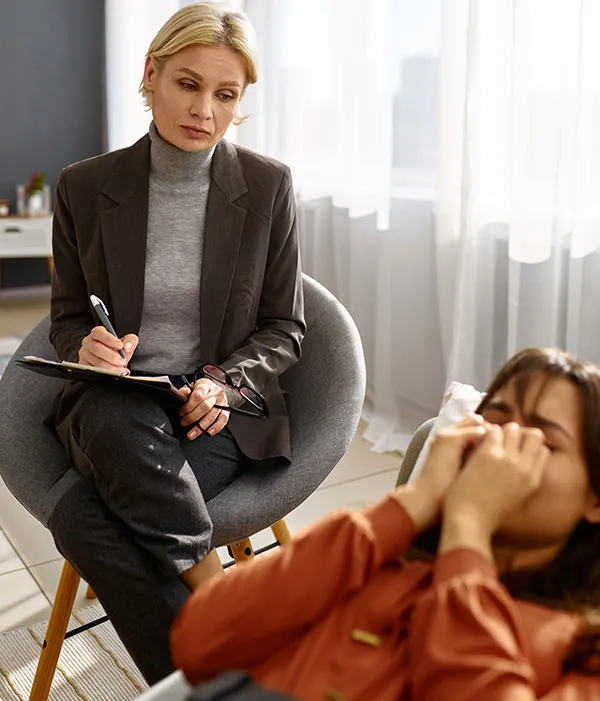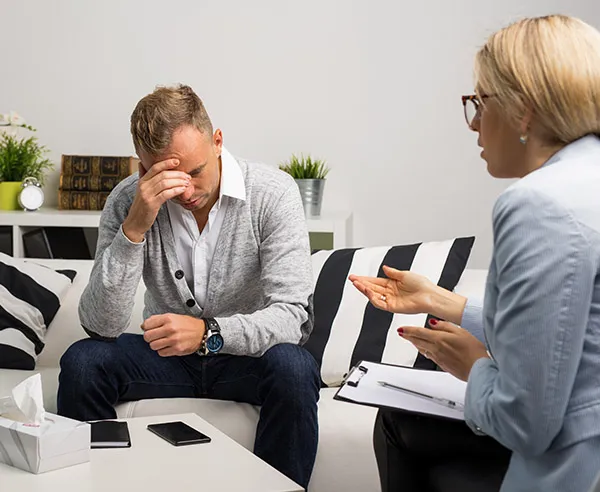How Can Depression Counselling Improve Mental Health?
الجسم
Depression is multifaceted and manifests differently in each individual. Managing symptoms of depression and treating it is no different.
Some people find that engaging in creative and physical stimulation helps them manage their symptoms. In contrast, others prefer to talk it out or journal. Others may find it difficult to seek help, and some may need medication to manage the chemical imbalances.
Here are some solutions for getting help with depression from depression counselling, including medication, therapy, support groups, lifestyle changes, and a few helpful resources.
Therapy for Depression
If you are experiencing symptoms related to mild to moderate depression, you may benefit from some form of therapy with a trusted, qualified therapist. A lot of mental health providers will advise attempting treatment before taking medication.
However, if your depression is severe, they may recommend using a combination of therapy and medication.

Talk therapy
Talk therapy entails talking to a licensed therapist about your worries and emotions.
It can be helpful to talk to someone who understands your feelings and can provide guidance in a safe space.
You can pinpoint thought or behavior patterns that fuel your emotions and depression with the assistance of a therapist.
Talk therapy can resolve temporary or mild depression, and it can help relieve severe depression, but not without other treatments, such as medication.
Behavioral therapy
You can recognize and alter potentially harmful or self-destructive behaviors with the support of behavioral therapy.
The idea is that all behaviors are learned, and unhealthy behaviors can be changed.
Behavioral therapy generally helps people engage in activities to increase feelings of well-being.
Cognitive Behavioral Therapy (CBT)
CBT combines cognitive and behavioral therapy and is a psychotherapy that helps you change your thought patterns to improve mood and behavior. If you're having difficulty in these areas, CBT counseling may be a good option.
Lifestyle changes
Certain lifestyle changes can also help you manage depression.
If you drink alcohol or use substances, avoiding these can have a big impact on your symptoms. Some people may feel temporary relief from depression when they use alcohol or substances. Still, once they finish, symptoms can become more severe. They can also make treating depression more difficult by consuming alcohol, then they will go for alcohol addiction counselling.

Natural remedies
Whether you prefer natural products, find the side effects of other medications too severe, or are simply looking for a new option to deal with depression, natural remedies can be a great option for many people.
Using complementary or natural remedies for depression alongside conventional treatments can be helpful. Consult your doctor before adding supplements or other complementary treatments to your routine.
How to find treatment near you
Scheduling a consultation with your primary care physician or other healthcare provider is the first step in receiving treatment for depression. They can suggest local mental health providers.
Online therapy options are more popular than ever. They can also be a great choice, especially if you're looking to save time and prefer to speak with someone from the comfort of your home. If budget is a concern, low-cost and online therapy options are available. Make sure to talk with your doctor for the best counselling therapy.










تعليقات